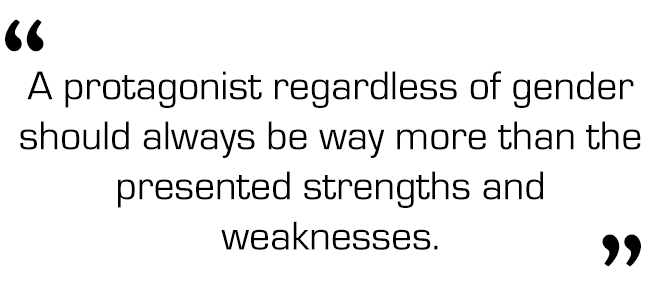Embrace the well-written female in cinema
October 10, 2014
There is absolutely no reason why we should be rooting for strong female characters in our cinema today.
Don’t get me wrong; I’m not saying that those who identify as female should not be written and acted out to be creatively complex, mixing bags of resilience, courage and vulnerability. However, given how far we’ve progressed from the image of the female being glass-ankled and overtly sexualized, it’s ridiculous how Hollywood has attempted to appease our demands for more equal gender representation on screen by providing us with what they believe to be strong female characters, but in reality are way too much brawn and beauty over brains.
We do not need female equivalents of Jean-Claude Van Damme, Arnold Schwarzenegger or other Hulk-strength hunks. Instead, we should be rooting for the female characters that shape the story by balancing their wits, kick-assery and charm, individuals whose decisions can make a difference and whose surrounding cast actually care about what they say and do. It will be her tested will and response to all emotional and physical obstacles regardless of significance that will give us a reason to grip the armrests of our seats and silently root for her to carry on.

Granted, she won’t be a superhero by any means; at times, she will be weak, she will struggle to stay afloat in an environment that is unfamiliar, and she will let forth the waterworks and ask for assistance when necessary. So what? There are numerous male characters in cinema who already have their personalities and actions written to express these imperfect psyches and exposed vulnerabilities, and often, they receive reserved judgement in a way that very few females have been able to call equal. If she is flawed, show us why she is flawed, and tell us why such development relates back to the plot at hand. A protagonist regardless of gender should always be way more than the presented strengths and weaknesses, so stop continuing to constrain the female identity to that which limits their possibilities and give them the well-written complexities they deserve.
I root for “The Hunger Games’” Katniss Everdeen because she has to deal with the struggle of maintaining a facade of incorruptible resolve in order to carry out a burden she never wanted. I praise “Frozen’s” Elsa because her story teaches us that true love can come from sibling love too and that my life does not need to be fulfilled by a radiant, ballsy female coming to rescue me from my castle.
We need more stories in which gender can add more to a role rather than define it. We need well-written, plot-driving characters to show that despite inherent differences, males and females can both contribute just as equally complex and awe-inspiring performances in their individual ways. Females do not always need to come out on top, but I would like to see them try. Forget the strong female character and embrace the well-written one.

